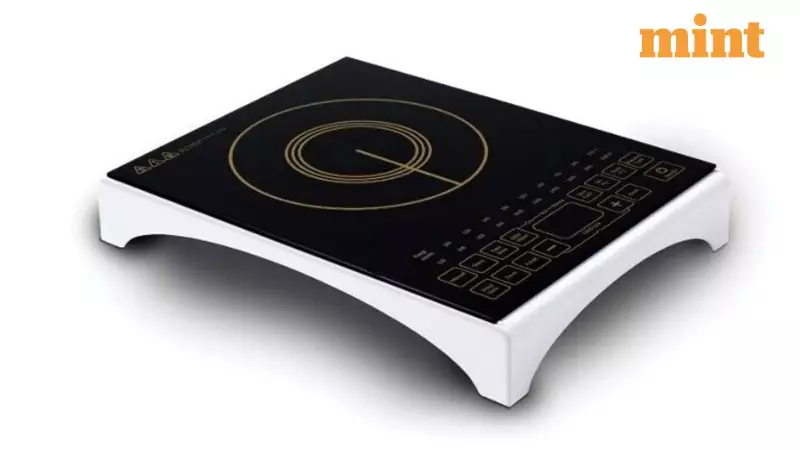
Induction Cooktops Revolutionize Indian Kitchen Routines
Modern Indian households are rapidly embracing induction cooktops as their primary cooking solution, transforming how families manage their busy schedules. The technology's promise of rapid heating, superior energy efficiency, and enhanced safety features makes it particularly attractive for everyday use in time-constrained environments.
Families balancing demanding office hours, school schedules, and hectic mornings increasingly prefer appliances that minimize effort without sacrificing performance. Induction cooktops excel precisely in these scenarios, though many potential users still question their reliability for daily cooking demands.
Understanding Induction Technology and Daily Performance
Induction cooking operates through electromagnetic waves that directly heat cooking vessels, creating rapid and uniform temperature distribution. This method proves significantly faster than traditional gas cooking while maintaining precise control over heat levels.
The cooktop surface remains relatively cool during operation, dramatically reducing burn risks and simplifying cleanup. The most significant advantage lies in the instantaneous response to temperature adjustments, allowing perfect execution of various cooking techniques from vigorous frying to delicate simmering and chocolate tempering.
For working professionals, preset options designed for Indian cuisine—including dosa preparation, curry cooking, deep frying, and milk boiling—reduce the need for constant monitoring. The electronic heat control prevents dishes from overcooking, while modern safety features like auto power cut, voltage protection, timers, and child locks provide additional peace of mind.
Essential Considerations for Daily Induction Cooking
Induction cooktops demonstrate excellent dependability for daily meal preparation when users understand several critical factors:
Cookware compatibility stands as the primary consideration. Only magnetic cookware functions effectively with induction technology. Stainless steel, cast iron, and specially designed induction-base aluminum vessels work perfectly, while regular aluminum or copper cookware remains incompatible.
Wattage requirements vary based on cooking needs. For Indian dishes involving extensive frying, boiling, and pressure cooking, cooktops between 1600 and 2000 watts deliver optimal performance. Lower wattage models may result in unsatisfactory heating speeds.
Despite having toughened glass surfaces, induction cooktops require careful handling. Avoid dropping utensils or sliding heavy pans across the surface. Using flat-bottomed cookware prevents scratches and ensures efficient heat transfer.
Proper ventilation proves crucial for maintaining performance. Induction units rely on internal cooling fans, and blocking vents or placing cooktops too close to walls can compromise functionality. Maintaining adequate space around the appliance ensures smooth airflow.
Electrical readiness often gets overlooked. The power socket must support the cooktop's wattage without causing fluctuations. Older wiring or inadequate extension cords can create operational problems, making direct wall socket connections preferable.
Regular cooling cycles represent normal operation. The internal fan sound during and after cooking indicates proper functioning rather than malfunction. This feature protects internal components from heat damage.
Maintenance remains straightforward for daily use. Wiping spills immediately and preventing water from entering vents preserves functionality. Periodic cleaning of the underside and ventilation openings keeps the cooling system operating efficiently.
Who Benefits Most from Induction Cooking?
Students, working couples, small families, and anyone prioritizing quick meal preparation find induction cooktops particularly advantageous. They serve as practical solutions for compact kitchens, energy-conscious households, and those seeking safer alternatives to open flames.
The technology's limitations primarily affect users who regularly employ round-bottom vessels or exceptionally heavy cookware unsuitable for glass surfaces. For most urban Indian households, however, induction cooktops represent a reliable, efficient, and safe cooking solution that aligns perfectly with contemporary lifestyle demands.






